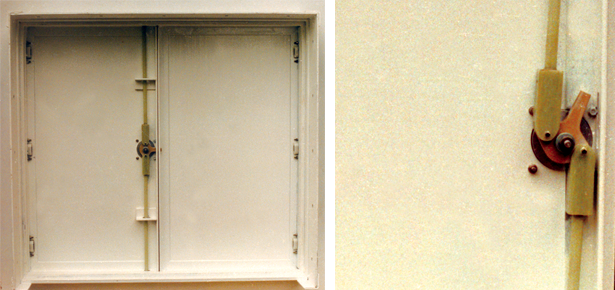Case Study: Fiberglass Tunnel Doors Less Expensive and Maintenance Free
 Fiberglass doors were selected to replace bronze doors on access compartments housing electrical equipment or corrosive materials in the Holland and Lincoln Tunnels in New York City. The all-fiberglass doors were less expensive, and the economic benefits increased with low installation costs and virtually no maintenance costs.
Fiberglass doors were selected to replace bronze doors on access compartments housing electrical equipment or corrosive materials in the Holland and Lincoln Tunnels in New York City. The all-fiberglass doors were less expensive, and the economic benefits increased with low installation costs and virtually no maintenance costs.
The fiberglass doors—42" x 48" wide and fabricated of EXTREN® fiberglass structural shapes—were one-tenth the cost of bronze doors. It took two hours to install fiberglass doors compared to three nights for bronze doors—an important consideration since traffic had to be stopped during installation.
| TECHNICAL DATA |
|---|
| Product: Fiberglass Tunnel Doors |
| Process: Pultrusion |
| Materials: EXTREN® Series 525 fiberglass reinforced polyester, fire retardant |
Sizes:
|
| For: Joseph T. Ryerson & Son, Inc. |
| Fabricator: Fiberglass Technologies, Inc. |
| User: New York/New Jersey Port Authority |
The bronze doors constantly warped from saltwater seepage, but after two years fiberglass doors show no sign of warpage or corrosion. This is true even though some access compartments hold salt and sand. Exhaust fumes in the tunnel plus chemicals used by tunnel washing machines are a constant corrosion problem, but the fiberglass doors are holding up. EXTREN® was selected also for its non-conductivity, an important factor for the house switch gear and electrical junction boxes located in select compartments.
The doors were produced by Fiberglass Technologies, Inc. using EXTREN® furnished by Joseph T. Ryerson. EXTREN® is an approved material with the New York Metro Transit Authority, the Port Authority of New York/New Jersey, and the U.S. Coast Guard.